Therapy dogs come in all shapes and temperaments—some exude calm and quiet comfort, while others radiate vibrant energy and enthuasiasm. Active therapy family dog breeds fall into the latter catagory, offering emotional suport and a lively presence that can instantly uplift spirits. These dogs don’t just sit still and soothe—they engage, energize, and bring joy whereever they go.
Ideal for environments like schools, pediatric hospitals, or community centers, these high-spirited companions bring comfort through interaction. Whether it’s a quick game of fetch, a playful trick, or simply a happy tail wag, they create meaningful connections through movement and fun, while still knowing when to slow down and offer a gentle paw.
Often seen as the cheerleaders of the therapy world, these great therapy dogs thrive on human connection. Their intelligence, affectionate nature, and zest for life make them uniquely suited for bringing positivity into places that need it most.
When choosing a therapy dog, it’s important to think beyond cuteness. Consider the dog’s size in your space and setting, its temperament, and energy level. While active breeds are engaging, they can also be demanding, so it’s vital to find a match that suits your lifestyle and therapy goals.
The breeds highlighted in this guide strike a perfect balance of heart, playfulness, and trainability, making them stand out in the world of active therapy work.
Active Therapy Dog Breeds
1. Golden Retriever
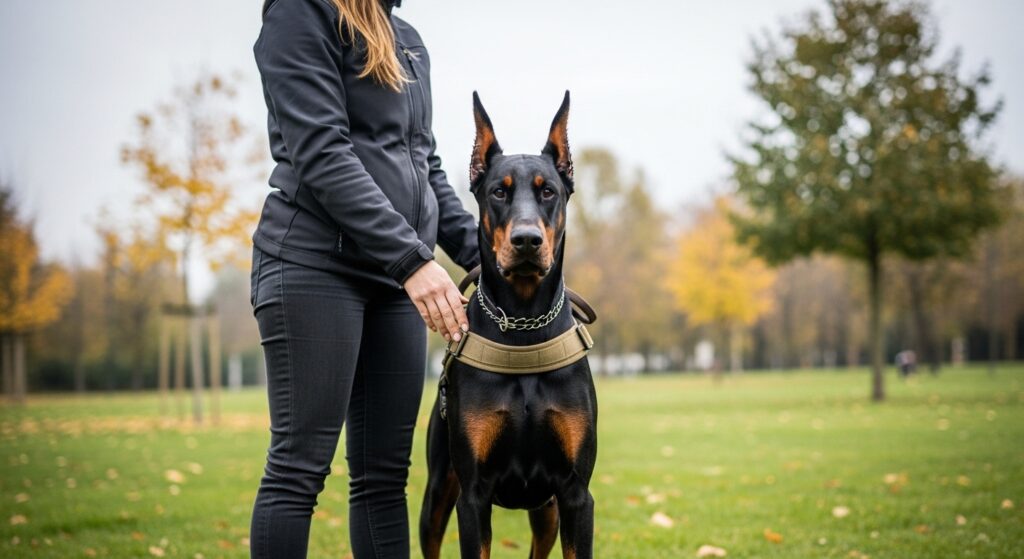
Ah, the Golden Retriever—who doesn’t love them? These most popular dog breeds with their shiny coats, sweet eyes, and boundless energy. Golden Retrievers are practically the poster pups for therapy work. They’re not just good—they’re paw-sitively perfect for it!

Golden Retrievers are sunshine wrapped in fur—loyal, friendly, and always up for a cuddle or a game of fetch. Their gentle nature and eagerness to please make them great therapy dogs, especially with kids, seniors, or anyone who needs a warm, furry hug. These dogs have a special ability to read emotions and know when someone needs a little extra cheer.
2. Yorkshire Terrier
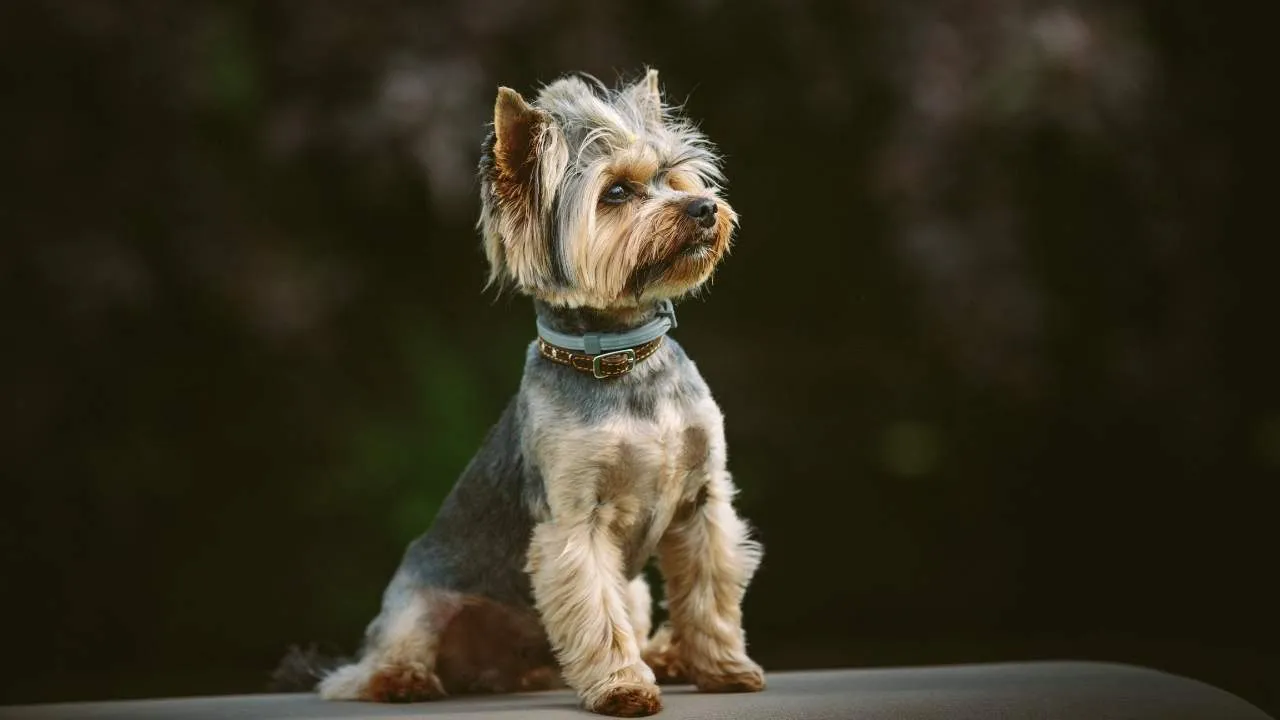
These pint-sized pups, weighing no more than 7 pounds, bring a surprising amount of spark to therapy work. Originally bred to be lap dogs, Yorkies are now known for their sass, smarts, and the ability to command a room with just a tail wag.
These excellent therapy dogs are ideal for therapy settings that require a bit of pep without the hassle of handling a large dog. Whether nestled in a lap or strutting down a hospital hallway, their silky coats and confident personalities make them instant mood-boosters. Their affectionate nature and compact size also make them ideal for close interactions, especially with kids or the elderly.
Personality Traits
Small but full of spark
Smart, social, and loves attention
Apartment-friendly & easy to handle
Allergy-considerate
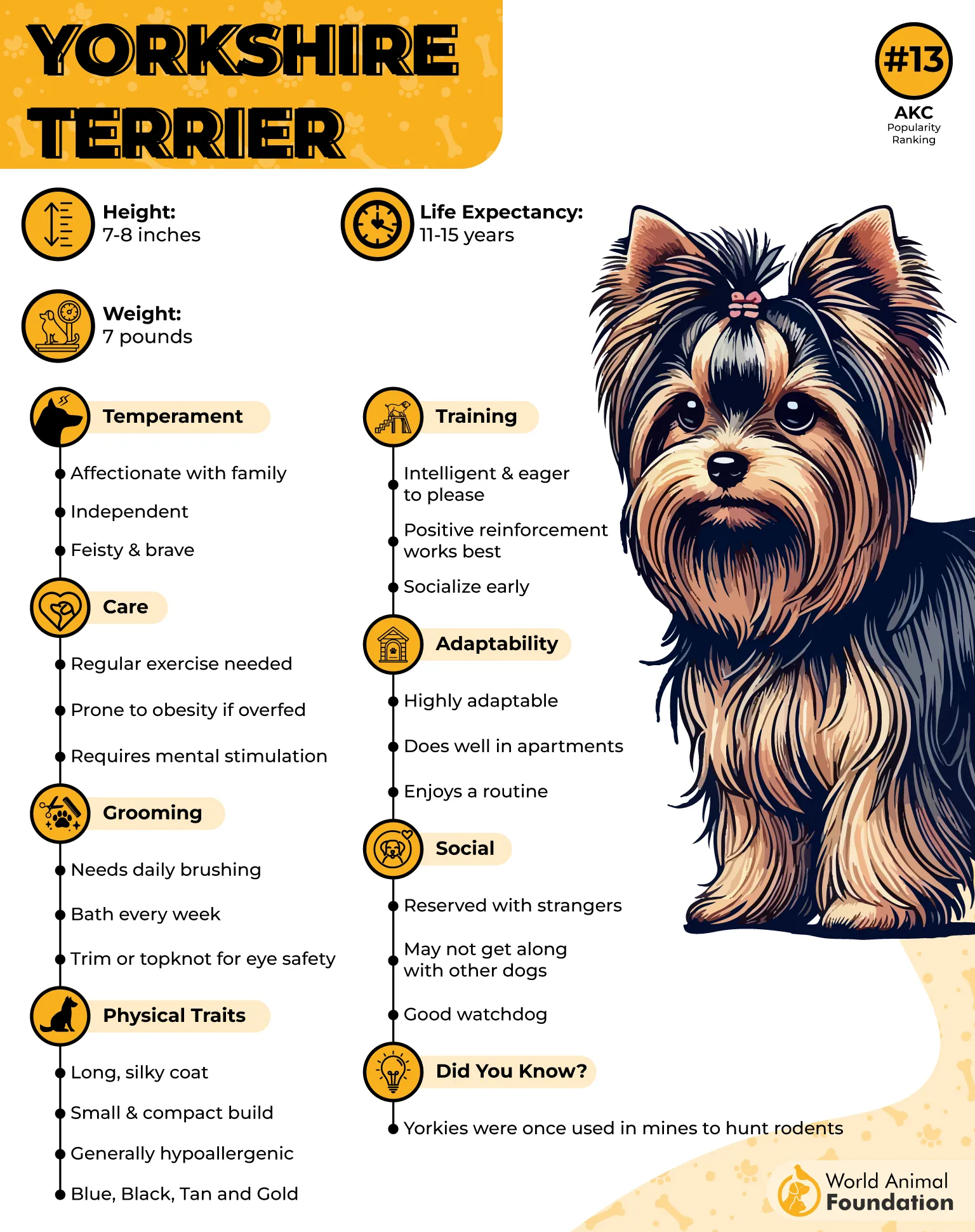
While they thrive in any living situation—be it a cozy apartment or spacious home—Yorkies do need regular walks and play to burn off their high energy. Two brisk walks a day usually do the trick.
Keep in mind, these little divas are prone to luxating patella, a common small dog health issue, so gentle handling is a must.
And the best part? Their low-shedding coats make them a great pick for allergy-sensitive people, noted by WebMD. No tumbleweeds of fur rolling through your living room.
3. Labrador Retriever
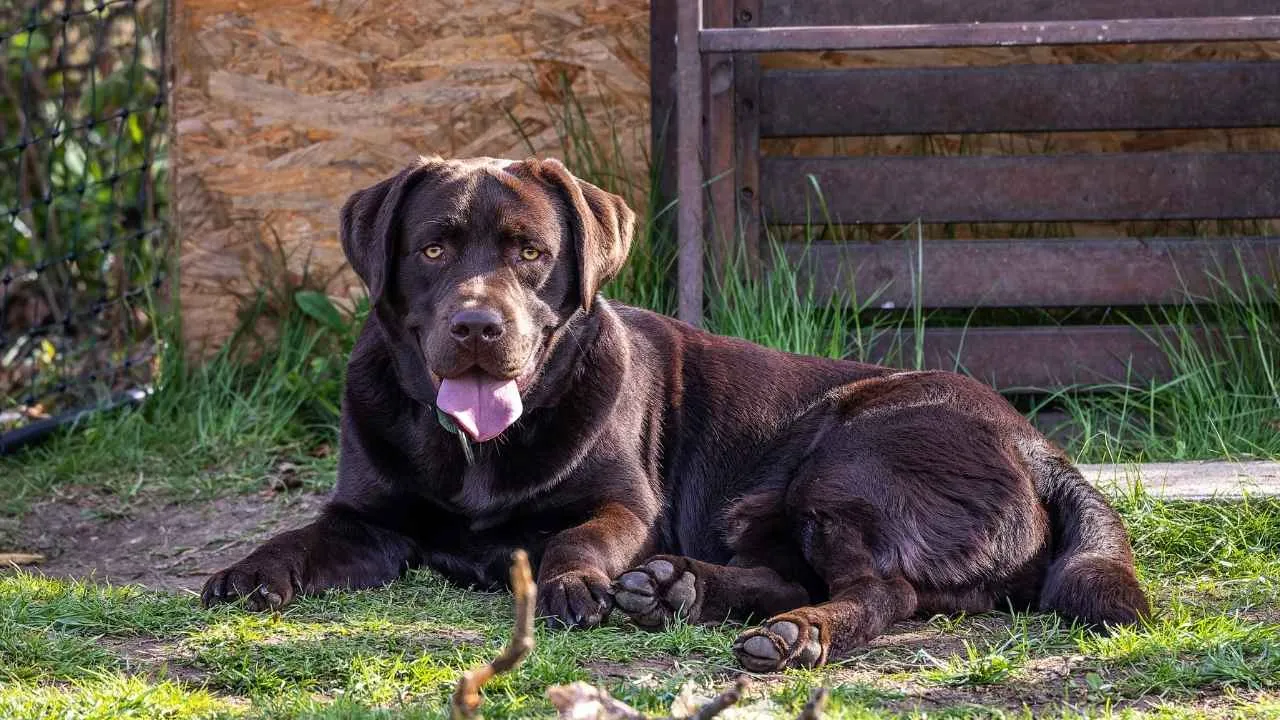
Labradors are one of the most popular therapy dog breeds worldwide. They make great family pets due to their gentle temperament, loyalty, and intelligence. Labradors are also highly versatile and can excel in various roles, including therapy dogs, medical alert dogs, service dogs, search-and-rescue, and hunting companions, and it’s no surprise why.
These medium dogs are the social butterflies of the dog world—outgoing, friendly, and always ready to spread joy. Labrador Retrievers are known for their natural ability to connect with people and their playfulness. If you’re looking for a dog that can bring both comfort and a good laugh, look no further.
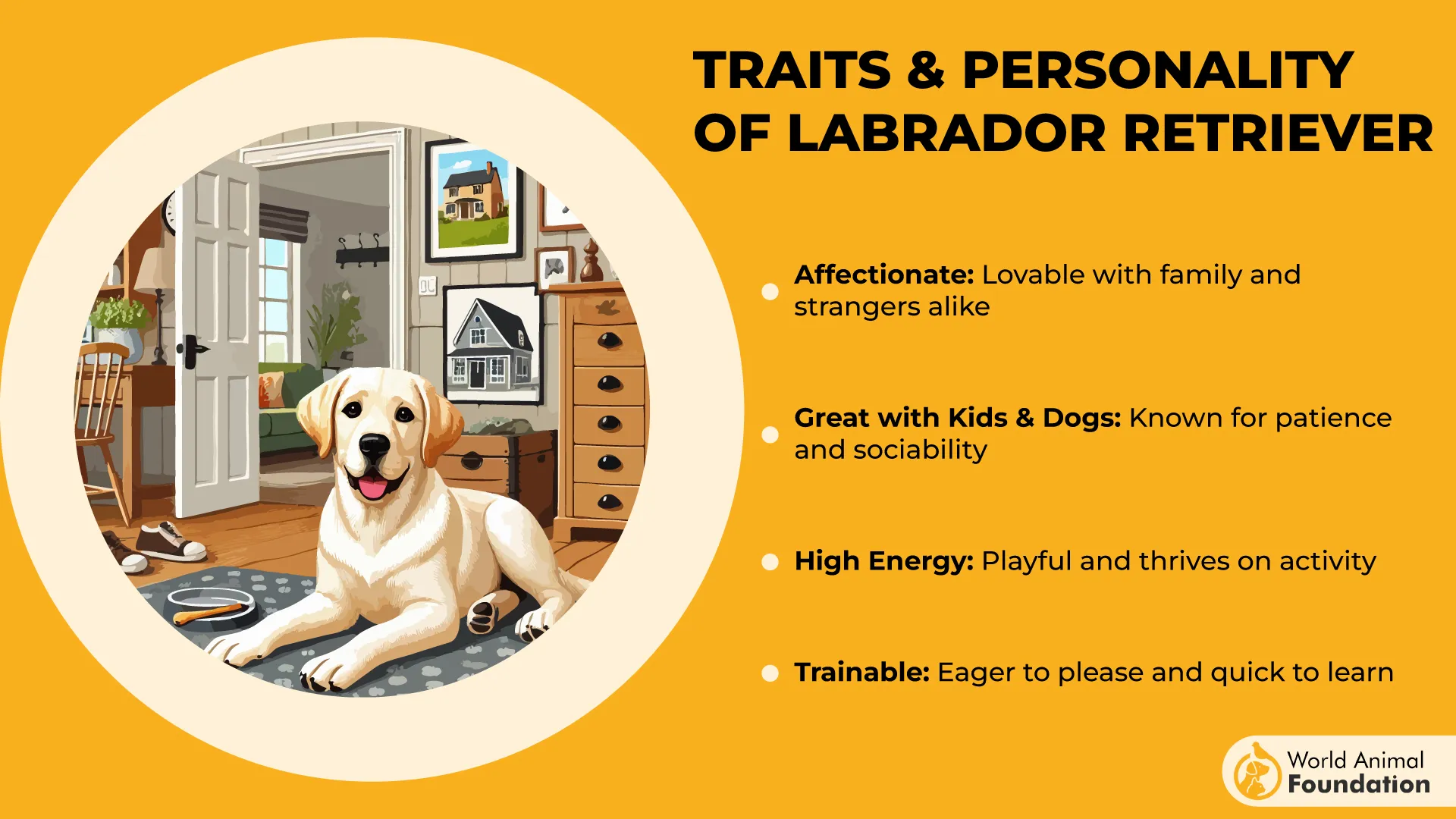
With wagging tails, floppy ears, and endless enthusiasm, Labrador Retrievers bring comfort and joy in equal measure. Whether it’s playing fetch or simply snuggling up, they know how to brighten any room.
Personality Traits
Friendly disposition & always up for fun
Needs daily exercise & playtime
Loves attention & cuddles
Excellent therapy dogs with a heart of gold
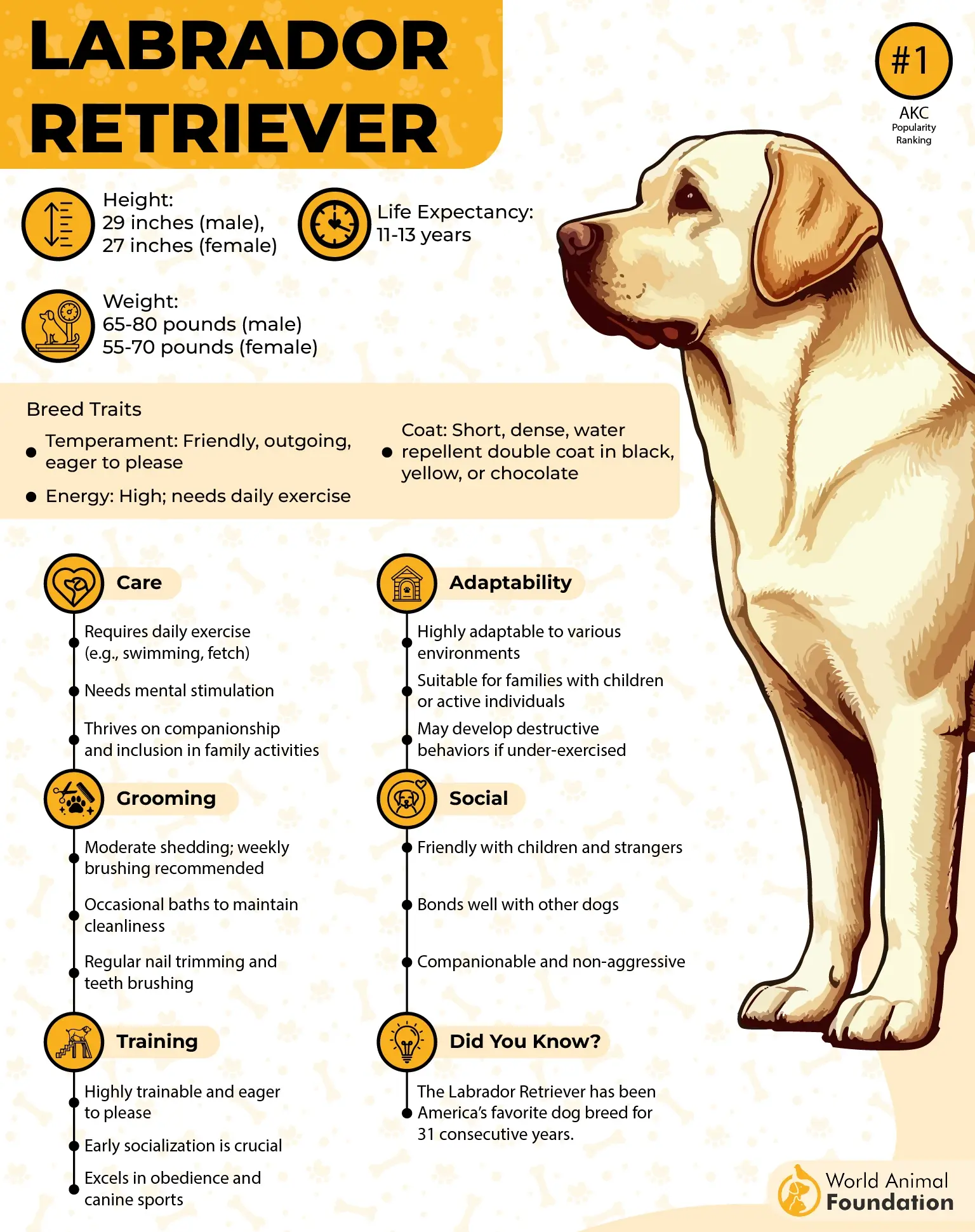
PetMD notes that they require plenty of exercise—about an hour a day—and lots of attention. If left bored, they can turn destructive. So, they’re best suited for active families ready to keep up with their energy and give them the love they crave.
4. Poodle
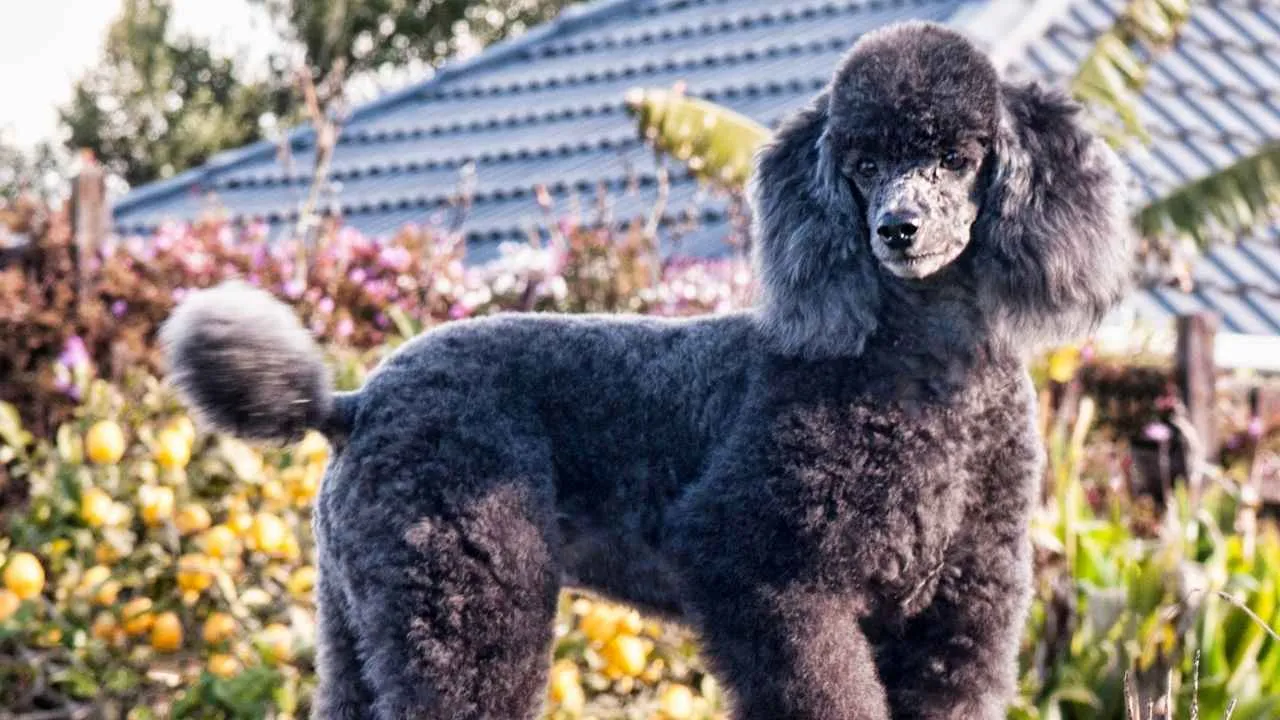
With their sleek, graceful movements and sharp minds, Poodles know how to capture attention. But underneath their elegant exterior lies a heart of gold and a deep love for making people feel cherished.
Whether it’s playing a game of fetch or performing tricks, Poodles thrive in therapy settings, where their eager-to-please attitude shines.
Known for being easily trainable, they excel at following commands and adapting to new challenges, making them perfect for emotional support roles. They also support individuals with mental disabilities.
Plus, their low-shedding coat makes them a great option for those with allergies. The Standard Poodle needs an active home with pet parents ready to engage in daily exercise and mental stimulation. They’re best suited for households with multiple adults or older children, where playtime and interaction are plentiful.
Personality Traits
Calm yet playful
Smart & easily trainable
Form strong bonds with humans
Allergy-friendly (low-shedding)
Loves to bond & interact
5. Border Collie
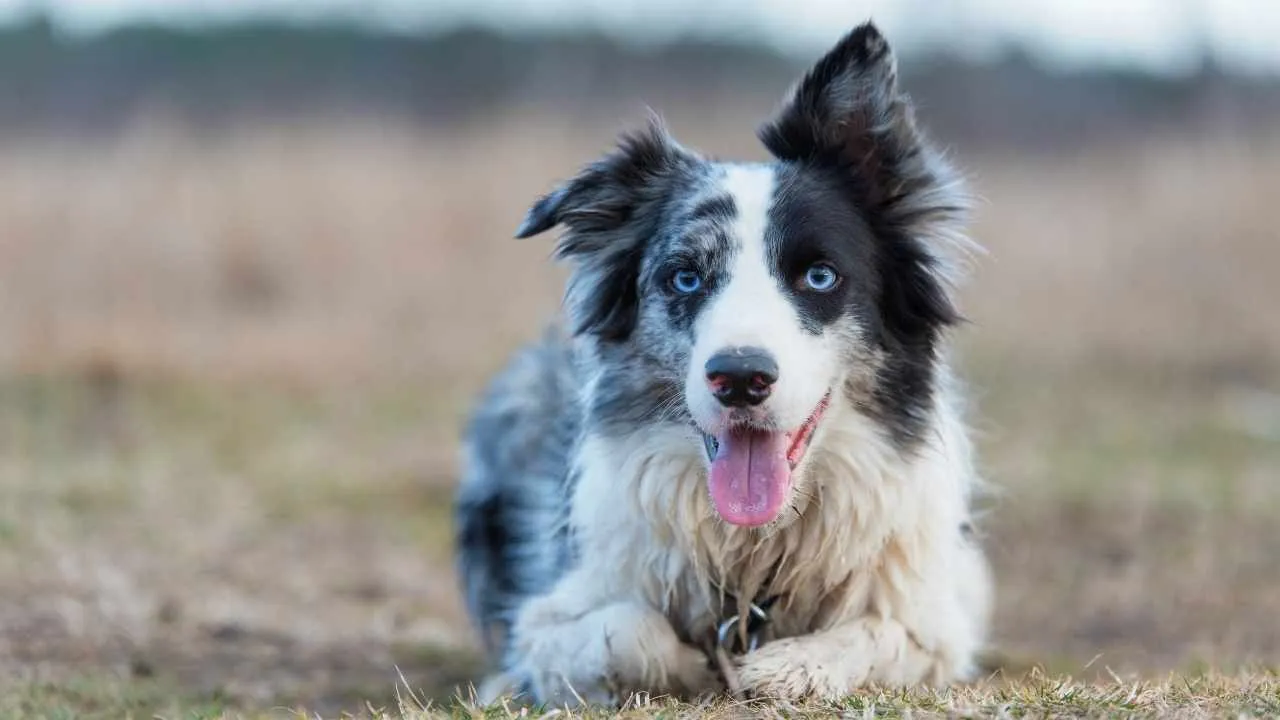
Brilliant, bouncy, and built for action, the Border Collie is like the overachiever of the dog world—and that’s exactly what makes them stand out as therapy companions.
With sharp intelligence and contagious energy, they bring both fun and focus to every session. Whether it’s solving a puzzle toy or showing off a trick, they love to engage and uplift.
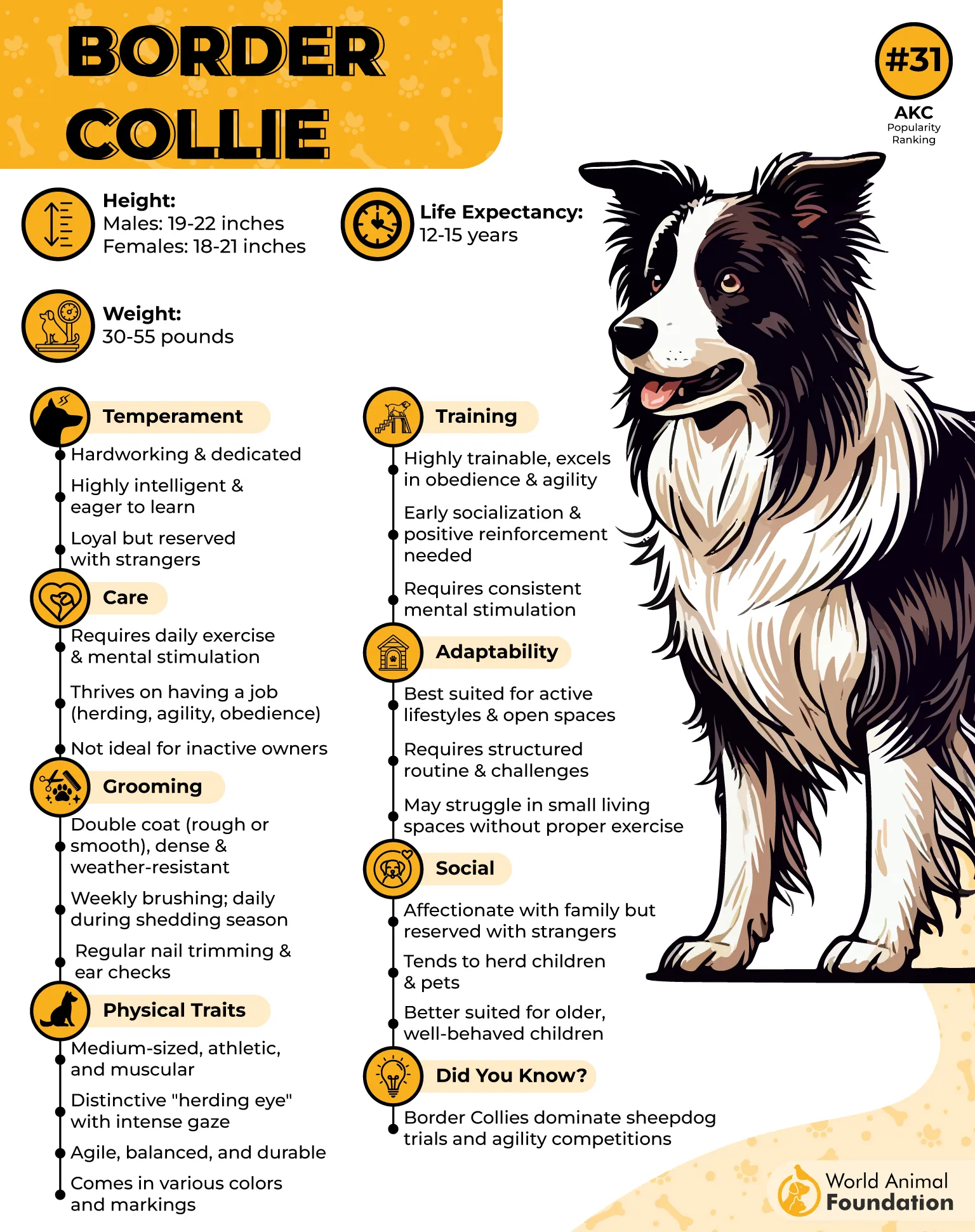
Originally bred for herding, they’re still agile, fast, and always alert. Weighing 30–55 pounds and standing 18–22 inches tall, these dogs need plenty of exercise—1 to 2 hours daily when young, tapering down to 30 minutes for seniors with joint issues.
Without mental challenges, boredom can lead to barking marathons or mischief. And while they’re affectionate with familiar faces, early socialization is key to helping them warm up to new people and settings.
Personality Traits
Super smart & quick to learn
Loves structured activities & tasks
Thrives with mental + physical play
Needs socialization to boost confidence
6. Papillon
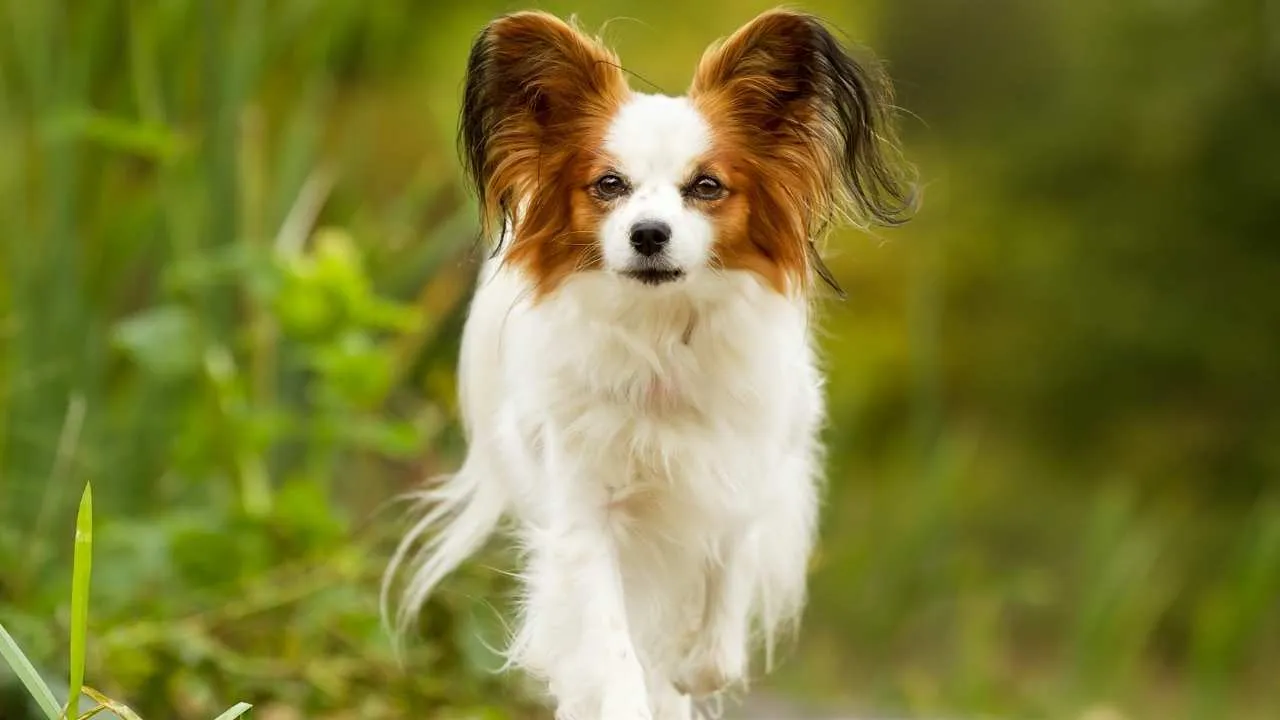
Don’t let their small size fool you—Papillons are bursting with personality and energy! With their signature butterfly-like ears and boundless enthusiasm, these lively little dogs are always ready for action and affection. They’re quick learners, eager to show off tricks or simply snuggle up with their humans.
Papillons are excellent therapy dogs, especially in settings that need a spark of joy and energy. Their cheerful disposition and love for people make them great companions. However, some may struggle with separation anxiety, which can lead to excessive barking or chewing.
Personality Traits
Adorable & full of energy
Quick to learn & love to please
Perfect for small spaces
Needs close interaction to thrive
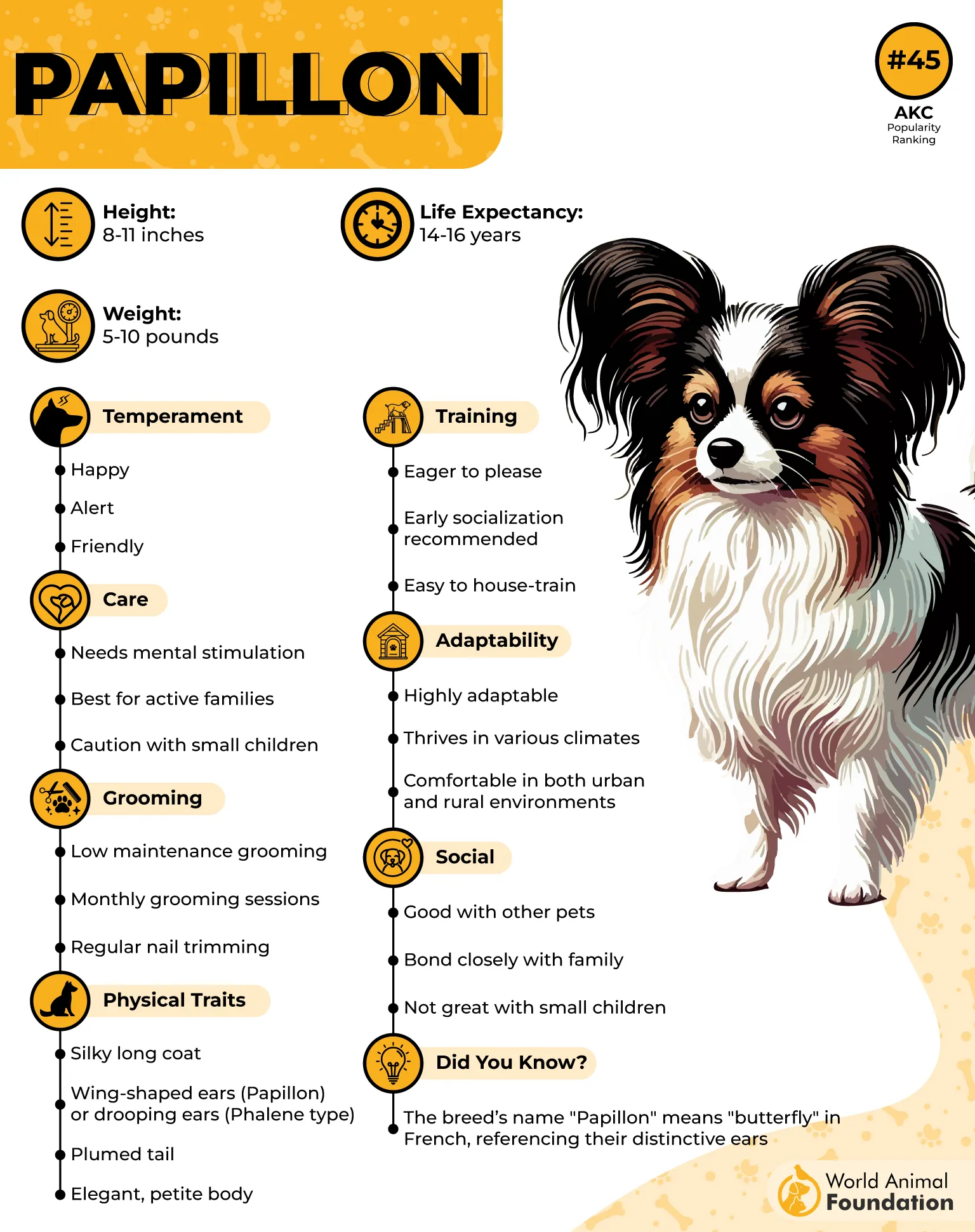
They’re one of the smartest dog breeds and love to please, so obedience training can be a breeze with the right approach. Whether they’re showing off tricks or simply snuggling up, they bring joy wherever they go. They’re also perfectly suited for smaller spaces, making them a great choice for apartment dwellers.
7. Beagle

With their friendly nature, endless curiosity, and irresistibly adorable faces, Beagles are always ready to brighten someone’s day.
Originally bred for hunting, Beagles are now beloved as companion dogs. Beagles come in two sizes: the standard height of 12–15 inches and a more miniature version under 12 inches. Regardless of size, a full-grown Beagle typically weighs no more than 30 pounds.
These cheerful pups are good therapy dogs, thanks to their gentle temperament, love for socializing, and ability to adapt to various environments. Whether it’s playing a game of fetch or just sitting quietly by your side, Beagles bring comfort with their soft, soulful eyes.
Personality Traits
Friendly & full of curiosity
Gentle & adaptable to new environments
Low-maintenance & easygoing
Social & loves making new friends
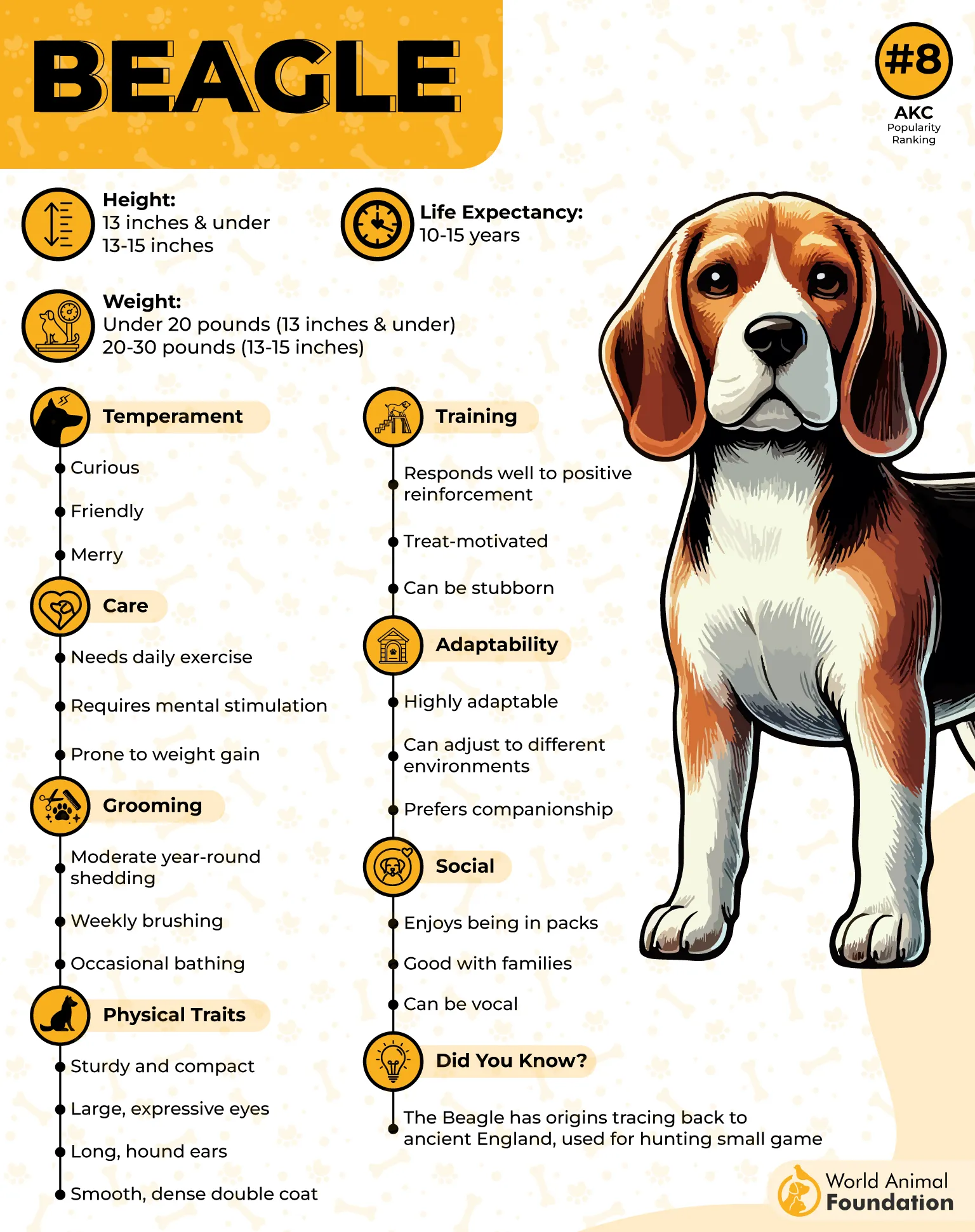
They’re relatively low-maintenance, needing just regular exercise and grooming to stay happy. Beagles are also social butterflies, enjoying the company of other dogs and even cats, especially when raised together.
However, potty training a Beagle can be a challenge. Thanks to their strong sense of smell, they’re prone to “revisiting” old spots in the house, as PetMD explains.
Conclusion
Active therapy dog breeds play a vital role in animal-assisted therapy, offering support and performing specific tasks to aid people with physical disabilities, psychiatric conditions, and more. With proper training, including therapy dog certification and tests like the canine good citizen test, Small therapy dogs like Cavalier King Charles Spaniel, Yorkshire Terrier, Beagle, French Bulldog, Bichon Frise, Pembroke Welsh Corgi, Shih Tzus, Toy Poodle, mixed breeds, and large breeds like German Shepherd can become excellent therapy dogs.
These emotional support animals and assistance dogs serve in nursing homes, therapy sessions, and home settings, helping with emotional support, service dog work, and animal-assisted activity. The canine world offers many good therapy dogs, but success depends on the individual temperament and ability to be easily trained. However, the best breeds for pet therapy are those that are well-trained, adaptable, and responsive. Whether helping in therapy sessions or working as guide dogs or psychiatric service dogs, these ideal therapy dogs improve lives and show how powerful animals can be in providing healing and comfort to dog owners.


